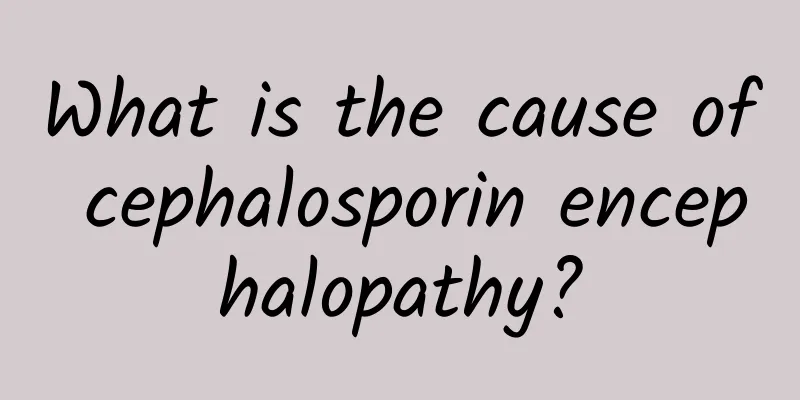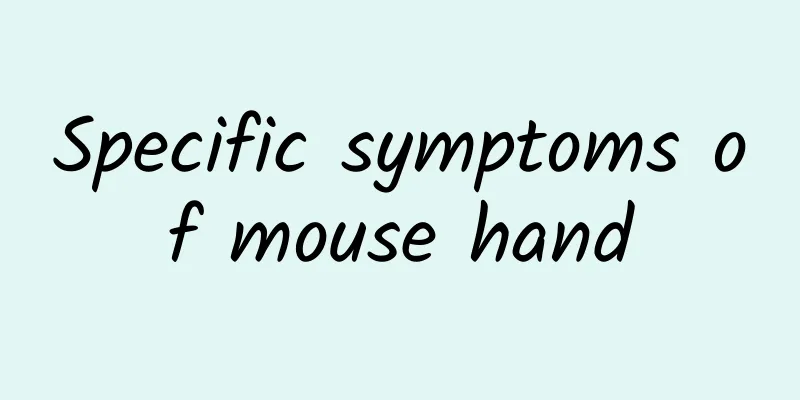What is the cause of cephalosporin encephalopathy?

|
Apart from causing allergic reactions and superinfections, cephalosporin antibiotics are relatively less harmful to the human body. However, in recent years, side effects have been continuously discovered, such as causing coagulation mechanism disorders and causing massive bleeding; so what is the cause of cephalosporin antibiotic encephalopathy? Causes The causes of cephalosporin antibiotic encephalopathy are multifaceted. Based on relevant literature reports in recent years and the results of pharmacokinetic research on cephalosporin antibiotics, they can be summarized as follows. 1. The dosage of cephalosporin antibiotics is too large and the treatment course is too long. 2. Elderly people are over 55 years old. As age increases, liver and kidney functions gradually decline, and the half-life of cephalosporin antibiotics is prolonged. And due to the influence of age-related diseases such as arteriosclerosis, the blood-nerve barrier function that protects the central nervous system from toxins is weakened, making it easier for cephalosporin antibiotics to enter the cerebrospinal fluid and brain tissue. 3. Renal insufficiency Cephalosporin antibiotics are mainly excreted through the kidneys. In the case of renal insufficiency, oliguria or even anuria, the half-life of cephalosporin antibiotics in the body will be greatly prolonged. 4. Patients with epilepsy According to literature reports, the use of cephalosporin antibiotics in patients with epilepsy can often induce epileptic seizures or make the seizures more frequent. 【Clinical manifestations】 The clinical manifestations of cephalosporin antibiotic encephalopathy are as follows. 1. Most patients have symptoms of chronic renal failure. 2. Onset time: Central nervous system symptoms appear 3 to 10 days after taking antibiotics. 3. There is a history of using cephalosporin antibiotics, which are mainly or completely excreted through the kidneys. Although the dosage has been reduced, the medication time is long, and there may be a history of relative overdose. 4. Neuropsychiatric symptoms are often manifested as poor cognitive ability, restlessness, confusion, and incoherent speech. A small number of patients present with delirium, mania, incoherent speech, irritability, hyperreflexia of tendons, and muscle tremors. In severe cases, convulsions, epileptic seizures, and impaired consciousness may occur. The patient is generally conscious between epileptic seizures. 5. Risk factors: Elderly patients, especially those with cerebrovascular diseases, long dialysis time, low body weight, and malnutrition have a higher incidence rate. 6. Different cephalosporins have different manifestations. The clinical manifestations of encephalopathy caused by the first, second, and third generation cephalosporins are different. First-generation cephalosporin encephalopathy often occurs in patients whose dosage is not appropriately adjusted and who do not receive regular hemodialysis. The hemodialysis effect is good after the onset of the disease. Third-generation cephalosporin encephalopathy can also occur in hemodialysis patients. After it occurs, the efficacy of hemodialysis is poor, but it can be relieved on its own after stopping the drug. The second-generation cephalosporins cause encephalopathy, which has poor hemodialysis response and cannot be relieved on its own, and have the worst prognosis. 【diagnosis】 The diagnosis is not difficult to make based on the history of cephalosporin use and the subsequent encephalopathy symptoms. If the symptoms of encephalopathy are inconsistent with the primary disease, or if the neurological symptoms gradually disappear after discontinuation of cephalosporins, it is helpful for the diagnosis of this disease. Differential diagnosis Cephalosporin antibiotic encephalopathy is complicated by uremia, which increases the patient's creatinine level. Some patients will have symptoms related to central nervous system diseases. It is easy to misdiagnose it as uremic encephalopathy or septic encephalopathy clinically, and needs to be differentiated. Key points for identification: ① No significant increase in urea nitrogen and creatinine levels; ② Exclude cerebrovascular disease; ③ No hyperglycemia, hypoglycemia, hyponatremia and severe acid-base imbalance; ④ Exclude imbalance in dialysis patients. |
<<: What does polycystic changes in both ovaries mean? What is polycystic ovary syndrome?
>>: How to treat suppurative pharyngitis? What fruits can help?
Recommend
How to quickly relieve high blood pressure?
High blood pressure is a disease that usually occ...
What should I do if the gestational sac is on the right side?
For women who are preparing to have children, esp...
Papular urticaria caused by allergies
Allergy is a common disease. We can have allergic...
Where to treat gallstones with moxibustion
Gallstones will affect the patient's normal l...
Liver function ALT high
The liver is one of the most important organs in ...
Can cranberries really cure gynecological diseases?
Cranberry is a relatively common fruit with relat...
Things to note when having double eyelid surgery
Double eyelid surgery is the most common type of ...
How to treat chronic enteritis in children
Chronic enteritis does not only appear in adults,...
What happens if you get stung by a wasp?
Hornets are a type of bee, but there are some dif...
Symptoms of acne folliculitis
Acne folliculitis is a relatively common disease ...
Why does a pregnant woman have thick white tongue coating? What are the classifications of tongue coating?
Traditional Chinese medicine believes that the to...
What to do with chickenpox scars
Chickenpox is a common disease. What makes it dif...
What are the symptoms of favism hemolysis
The early symptoms of favism hemolysis include di...
How many times a day should I take Panax notoginseng powder?
Panax notoginseng powder is a very common Chinese...
What do glucocorticoids do?
Many people do not know what glucocorticoids are....









